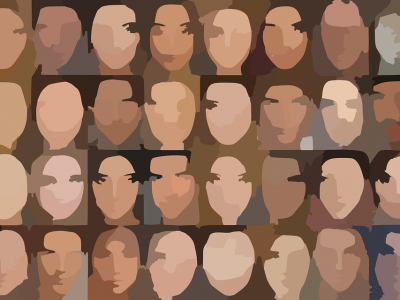
Disparaging Jordan's royal family are among subjects made taboo under a new law. Image via Flickr user yousefomar. (CC BY-NC-SA 2.0)
Most of this report was researched, written, and edited by Lisa Ferguson, Weiping Li, Alex Laverty, Chan Myae Khine, Ellery Roberts Biddle, and Sarah Myers.
Global Voices Advocacy's Netizen Report offers an international snapshot of challenges, victories, and emerging trends in Internet rights around the world. This week's report highlights new censorship practices in Jordan and China and troubling developments in Turkey as protests continue.
Censorship
Jordan has blocked at least 281 websites in the first implementation of its amended Press and Publications Law. The amended law, which went into effect in January, requires news sites to register with the government or face being added to a blacklist. The blacklist also applies to content that “‘shakes confidence’ in the national currency, ‘disparages’ the Jordanian royal family, and instigates physical protests” according to digital news site Mashable.
Access to Facebook and Twitter appears to be throttled in Istanbul as the city undergoes massive anti-government protests. The sites are not officially blocked, but loading times are significantly slower than usual, particularly for users seeking access through 3G networks. Although this could be due to massive amounts of traffic on the sites, advocates recall that Turkish Prime Minister Recep Tayyip Erdogan has called social media, which has played an important role in connecting the community around the protests, “the worst menace to society.”
Chinese microblogging site Sina Weibo introduced new censorship tactics ahead of the anniversary of the Tiananmen Square protests on June 4. Rather than return results that indicate some content is censored, search results will now indicate that nothing interesting is being said about the topic.
In an apparent effort to curb cyberbullying, lawmakers in the Mexican state of Nuevo León passed a law stipulating that anyone who uses social networks to post messages or images that cause “harm, dishonor, discredit to a person, or exposes him or her to contempt” can be incarcerated for up to three years.
Thuggery
A Tunisian blogger is facing trial before a military court for “undermining the reputation of an army” and “defamation of a public official” after he published a letter on his blog to the Minister of Defence criticizing the treatment of patients at a military hospital.
Surveillance
The Nigerian House of Representatives unanimously passed a resolution to investigate the clandestine award of a $40 million contract from the federal government to an Israeli technology firm to reportedly spy on Nigerian Internet users.
National Policy
The Cuban government will soon offer Internet access at 118 cyber centers around the island through state telecom company ETECSA for the equivalent of US$4.50 per hour, a significantly cheaper rate than what is offered by hotels on the island. According to government statistics, only 2.9 percent of Cubans have access to the global Internet, though experts familiar with the island's informal economy estimate this number to be closer to 10 percent.
A member of the British government’s Internet Task Force on Child Protection has called on Google and other search engines to do more to restrict access to online pornography.
Intellectual Property
The Electronic Frontier Foundation submitted an amicus brief to the U.S. Court of Appeals for the Federal Circuit arguing that APIs, which are the interfaces that allow computer applications to communicate with one another, should not be copyrightable because they are critical for spurring innovation.
Netizen Activism
In the United Arab Emirates, the Abu Dhabi appeals court affirmed the 10-month prison sentence of netizen Abdullah Al-Hadidi on May 22. Al-Hadidi was arrested in March and charged under a controversial new cyber crime law that was adopted in late 2012. He was accused of disseminating information on Twitter “in bad faith” concerning the trial 94 of Emirati citizens accused of endangering the national security of the Emirates.
Global Voices Advocacy interviewed Bahraini activist, blogger and GV author Ali Abdulemam, who recently escaped from his country after two years in hiding. Abdulemam spoke about citizen activism and advocacy for human rights in the island nation as well as his personal experience living in hiding.
Cool Things
German design team Onformative has developed a program that can scan Google Maps and detect “face-like” images in our landscapes all over the world. This project’s key concept, according to their website, is “ the autonomy of the face searching agent and the amount of data we are investigating.” This pattern detection technology aims to enhance human imagination and facilitate future breakthroughs.
Publications and Studies
Subscribe to the Netizen Report by email
For upcoming events related to the future of citizen rights in the digital age, see the Global Voices Events Calendar.




1 comment